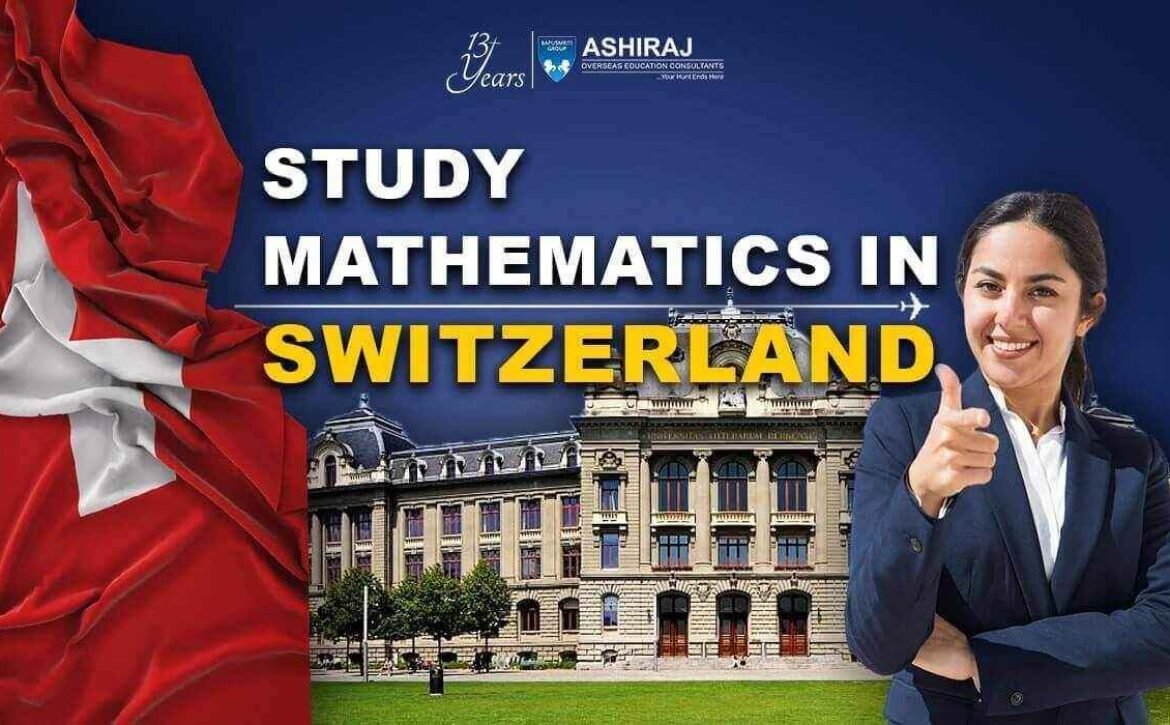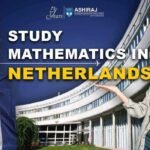
Mathematics in Switzerland
Switzerland, renowned for its scenic landscapes and precision engineering, also boasts a rich tradition in mathematics. From the pioneering work of Leonhard Euler to contemporary advancements in cryptography and finance, Mathematics in Switzerland occupies a central position in both academia and industry. The Swiss educational system emphasizes mathematical rigor from primary school through university, nurturing a culture that values analytical thinking and problem-solving skills. This commitment to mathematical excellence is reflected in Switzerland’s high rankings in international assessments like the Programme for International Student Assessment (PISA) and the Trends in International Mathematics and Science Study (TIMSS).
Within the Swiss academic landscape, institutions such as ETH Zurich and the University of Zurich stand out as hubs for mathematical research and innovation. Their contributions span a wide spectrum, encompassing fields such as differential geometry, mathematical physics, and computational mathematics. Moreover, Switzerland’s financial sector relies heavily on mathematical modeling for risk management and algorithmic trading, highlighting the practical applications of mathematics in driving economic success. Thus, Mathematics in Switzerland not only serves as a testament to the country’s intellectual prowess but also as a catalyst for technological advancement and financial stability.
Why to Study Mathematics in Switzerland?
- Academic Excellence: Switzerland boasts top-tier institutions like ETH Zurich and the University of Zurich renowned for their mathematical research and teaching.
- Strong Emphasis on Rigor: Swiss educational system prioritizes mathematical rigor from primary to tertiary education, nurturing a culture of analytical thinking and problem-solving.
- Historical Legacy: Switzerland has a rich mathematical heritage, with luminaries like Leonhard Euler making significant contributions to the field.
- International Recognition: Switzerland consistently ranks high in international assessments such as PISA and TIMSS, indicating the effectiveness of its mathematical education.
- Interdisciplinary Opportunities: Mathematics in Switzerland intersects with various disciplines including physics, finance, and computer science, offering diverse avenues for exploration and application.
- Career Prospects: Switzerland’s financial sector relies heavily on mathematical modeling for risk management and algorithmic trading, providing lucrative career opportunities for mathematicians.
- Quality of Life: With its high standard of living and picturesque surroundings, studying mathematics in Switzerland offers not just academic benefits but also an enriching lifestyle experience.
In conclusion, pursuing mathematics in Switzerland offers a unique blend of academic excellence, historical significance, and promising career prospects, making it an attractive destination for aspiring mathematicians worldwide.
Top Universities to Study Mathematics in Switzerland
University | QS World University Ranking 2023 | Type of University | Average Annual Fees | Programs Offered |
ETH Zurich | 10 | Public | CHF 1,300 | Mathematics, Applied Mathematics, Computer Science, Physics |
University of Zurich | 59 | Public | CHF 1,000 | Mathematics, Statistics, Data Science, Computational Science |
University of Geneva | 104 | Public | CHF 1,500 | Mathematics, Mathematical Physics, Economics, Finance |
University of Basel | 108 | Public | CHF 1,200 | Mathematics, Mathematical Physics, Computational Sciences |
EPFL (École Polytechnique Fédérale de Lausanne) | 23 | Public | CHF 1,500 | Mathematics, Applied Mathematics, Computer Science, Engineering |
Switzerland stands out as a hub for mathematical education with its top-tier universities offering diverse programs in the field. ETH Zurich, ranked 10th in the QS World University Rankings 2023, leads the pack with programs ranging from Mathematics to Applied Mathematics. The University of Zurich follows closely, offering Mathematics alongside Statistics and Data Science at an affordable average annual fee of CHF 1,000. For those interested in interdisciplinary studies, the University of Geneva provides programs in Mathematics along with subjects like Economics and Finance. The University of Basel and EPFL also offer excellent opportunities in Mathematics and related fields such as Mathematical Physics and Computational Sciences, further solidifying Switzerland’s reputation as a premier destination for Mathematics studies.
Course Curriculum for Mathematics in Switzerland
- Foundational Courses: Mathematics programs in Switzerland typically start with foundational courses covering topics such as calculus, algebra, and geometry, laying the groundwork for advanced studies.
- Advanced Analysis: Students delve deeper into mathematical analysis, exploring concepts like real analysis, complex analysis, and functional analysis to develop a rigorous understanding of mathematical structures.
- Applied Mathematics: The curriculum often includes courses in applied mathematics, focusing on practical applications in fields like physics, engineering, and finance, reflecting Switzerland’s emphasis on interdisciplinary studies.
- Probability and Statistics: Probability theory and statistical methods play a crucial role in the curriculum, providing students with essential tools for data analysis and decision-making in various domains.
- Specialized Electives: Students have the opportunity to specialize in areas of interest through elective courses, which may include topics such as number theory, cryptography, mathematical modeling, and computational mathematics.
- Research Opportunities: Many programs offer research opportunities, allowing students to collaborate with faculty on cutting-edge projects and contribute to advancements in the field.
- Internships and Industry Projects: Some programs incorporate internships or industry projects, providing hands-on experience and preparing students for careers in academia, research, or industry sectors such as finance and technology.
Overall, the course curriculum of Mathematics in Switzerland is designed to provide a comprehensive education that equips students with theoretical knowledge, practical skills, and opportunities for real-world application, reinforcing Switzerland’s status as a leading destination for mathematical studies.
Eligibility Criteria & Admission Requirements for MS in Mathematics in Switzerland
- Language Proficiency: Applicants are required to demonstrate proficiency in English through standardized tests such as IELTS or TOEFL. Minimum scores typically range from 6.5 to 7.0 for IELTS and 90 to 100 for TOEFL.
- Standardized Tests: Depending on the university and program, applicants may need to submit scores for either GRE or GMAT. GRE scores around 160 in Quantitative Reasoning are often preferred, while competitive GMAT scores range from 650 to 700.
- Academic Certificates: Applicants must provide transcripts and certificates from previous academic institutions, showcasing academic achievement and suitability for the mathematics program.
- Passport & Student Visa: International applicants need a valid passport and must obtain a student visa to study in Switzerland. Visa requirements may vary, but typically include proof of acceptance into a recognized educational institution, financial stability, and health insurance.
- Work Experience: While not always mandatory, some mathematics programs may consider relevant work experience as part of the application criteria, particularly for advanced or executive programs.
Test | Minimum Score |
IELTS | 6.5 – 7.0 |
TOEFL | 90 – 100 |
GRE | 160 (Quantitative Reasoning) |
GMAT | 650 – 700 |
Meeting these eligibility criteria ensures that candidates possess the necessary language proficiency, academic background, and potential for success in Mathematics in Switzerland, underscoring the rigorous standards upheld by Swiss universities in nurturing mathematical talent.
Documents Required for Studying Mathematics in Switzerland
- Passport: A valid passport is essential for international students applying to study Mathematics in Switzerland, serving as proof of identity and nationality.
- Letters of Recommendation (LOR): Applicants typically need to submit two or more LORs from academic or professional references attesting to their academic abilities, character, and suitability for the mathematics program.
- Statement of Purpose (SOP): An SOP detailing the applicant’s academic background, research interests, career goals, and reasons for choosing to study Mathematics in Switzerland is often required.
- Curriculum Vitae (CV): A comprehensive CV outlining the applicant’s educational qualifications, academic achievements, research experience, publications, and relevant skills.
- Official High School Transcripts: Transcripts from the applicant’s high school or secondary education institution demonstrating academic performance and completion of required coursework.
- Educational Certificates: Certificates or diplomas from previous educational institutions, including degrees related to Mathematics, if applicable.
- Work Experience Certificate: If applicable, a certificate verifying any relevant work experience, demonstrating the applicant’s professional background and capabilities.
- Proof of Financial Resources: Applicants must provide evidence of sufficient financial resources to cover tuition fees, living expenses, and other associated costs while studying Mathematics in Switzerland.
Ensuring the timely submission of these documents is crucial for a successful application to Mathematics in Switzerland, as they provide universities with insight into the applicant’s qualifications, experiences, and readiness for academic study.
Admission Process for Mathematics in Switzerland
- Research: Begin by researching universities in Switzerland offering Mathematics programs and reviewing their admission requirements, program details, and application deadlines.
- Prepare Documents: Gather the necessary documents, including transcripts, certificates, passport, letters of recommendation (LOR), statement of purpose (SOP), curriculum vitae (CV), and proof of financial resources.
- Language Proficiency: Take the required language proficiency tests such as IELTS or TOEFL and achieve the minimum scores specified by the universities.
- Standardized Tests: Depending on the university, prepare for and take either the GRE or GMAT, ensuring to meet the minimum score requirements.
- Submit Application: Complete the online application form for your chosen universities, ensuring to provide accurate information and upload all required documents.
- Application Fee: Pay the application fee as per the university’s instructions.
- Wait for Decision: Await the university’s decision on your application. This process may take several weeks to months, so be patient.
- Acceptance: If accepted, carefully review the offer letter and follow the instructions for confirming your acceptance and securing your spot in the Mathematics program.
- Visa Application: For international students, apply for a student visa following the guidelines provided by the Swiss embassy or consulate in your country.
- Arrival: Upon receiving your visa, make necessary travel arrangements and prepare to embark on your journey to study Mathematics in Switzerland.
By following these steps diligently, prospective students can navigate the admission process smoothly and embark on their academic journey in Mathematics in Switzerland.
“Education is the most powerful weapon which you can use to change the world.”
Nelson Mandela
Cost of Mathematics Course in Switzerland
- Tuition Fees: Tuition fees for Mathematics programs in Switzerland vary depending on the university and level of study. Public universities generally have lower tuition fees compared to private institutions.
- Public vs. Private: Public universities typically charge tuition fees ranging from CHF 1,000 to CHF 2,000 per semester for international students, while private universities may have higher fees.
- Living Expenses: Switzerland is known for its high cost of living, including accommodation, food, transportation, and other daily expenses. Budgeting for accommodation, food, transportation, and personal expenses is crucial.
- Scholarships and Financial Aid: Scholarships and financial aid opportunities are available for international students studying Mathematics in Switzerland. These can help offset tuition fees and living expenses.
- Health Insurance: Health insurance is mandatory for all students studying in Switzerland. International students must purchase health insurance that meets Swiss requirements, which adds to the overall cost.
- Part-time Work: Some students may opt for part-time work to supplement their income, although it’s essential to ensure that it doesn’t interfere with academic commitments.
- Overall Cost: The overall cost of studying Mathematics in Switzerland, including tuition fees, living expenses, health insurance, and other miscellaneous expenses, can range from CHF 20,000 to CHF 40,000 per year, depending on various factors.
Understanding the cost of studying Mathematics in Switzerland is crucial for prospective students to make informed decisions and plan their finances accordingly, ensuring a smooth and successful academic journey.
Scholarships for Mathematics Courses in Switzerland
Scholarship Name | Amount | Application Deadline | Eligibility Criteria |
Swiss Government Excellence Scholarships | Full tuition fees, monthly stipend, health insurance | Varies (typically around September) | Open to international students pursuing master’s or PhD in Switzerland, excellent academic record |
ETH Zurich Excellence Masters Scholarships | CHF 6,000 to CHF 32,000 per semester | December 15 | Open to international students applying for a master’s program at ETH Zurich, outstanding academic performance |
University of Zurich Excellence Scholarship | CHF 25,000 per year | January 31 | Open to international students applying for a master’s program at the University of Zurich, exceptional academic achievements |
EPFL Excellence Fellowships | Varies | January 15 | Open to international students applying for a master’s or PhD program at EPFL, outstanding academic record, potential for research |
Swiss-European Mobility Programme (SEMP) Scholarships | Varies | Varies (check with host institution) | Available for students enrolled at a Swiss university to study abroad in Europe, including Mathematics in Switzerland |
Scholarships play a vital role in making Mathematics in Switzerland more accessible to international students. These scholarships cover tuition fees, provide living stipends, and offer opportunities for academic and research excellence. It’s essential for prospective students to check the eligibility criteria and application deadlines for each scholarship opportunity to maximize their chances of securing financial support for their studies.
Career Opportunities After Mathematics in Switzerland
Job Profile | Average Salary (CHF) |
Data Analyst | 85,000 – 120,000 |
Quantitative Analyst | 100,000 – 150,000 |
Actuary | 90,000 – 130,000 |
Financial Analyst | 90,000 – 130,000 |
Software Engineer | 95,000 – 140,000 |
Mathematics in Switzerland opens up diverse career opportunities across various sectors. Data analysts utilize mathematical and statistical techniques to analyze data and extract insights, earning an average salary ranging from 85,000 to 120,000 CHF annually. Quantitative analysts apply advanced mathematical models to financial markets, with salaries ranging from 100,000 to 150,000 CHF. Actuaries assess financial risks using mathematical models, earning between 90,000 to 130,000 CHF per year. Financial analysts analyze financial data and trends to guide investment decisions, earning similar salaries. Software engineers develop and maintain software systems, with average salaries ranging from 95,000 to 140,000 CHF. With their strong analytical and problem-solving skills, mathematicians in Switzerland can thrive in these lucrative career paths, contributing to the country’s financial stability and technological advancement.
Frequently Asked Questions About Mathematics in Switzerland
The top universities for Mathematics in Switzerland include ETH Zurich, University of Zurich, University of Geneva, University of Basel, and EPFL.
Most universities in Switzerland require proficiency in English, demonstrated through tests like IELTS or TOEFL for international students.
Yes, there are various scholarships available for international students pursuing Mathematics in Switzerland, including government scholarships, university-specific scholarships, and research grants.
The cost varies depending on the university and lifestyle, but on average, international students can expect to spend between CHF 20,000 to CHF 40,000 per year on tuition fees and living expenses.
Career opportunities include roles such as data analyst, quantitative analyst, actuary, financial analyst, software engineer, and more, with competitive salaries and growth prospects.
Yes, international students are allowed to work part-time during their studies, typically up to 15-20 hours per week, to supplement their income.
The duration of a Mathematics degree varies depending on the level of study. A bachelor’s degree typically takes three years, while a master’s degree can take one to two years.
While a strong background in Mathematics is beneficial, many universities offer preparatory courses and support for students to strengthen their mathematical skills.
Yes, Switzerland is known for its research-intensive environment, and universities offer numerous opportunities for research in Mathematics through funded projects, collaborations, and academic programs.
International students have access to various support services, including academic advising, career counseling, language assistance, and student organizations, to help them adjust to life in Switzerland and succeed in their studies.




